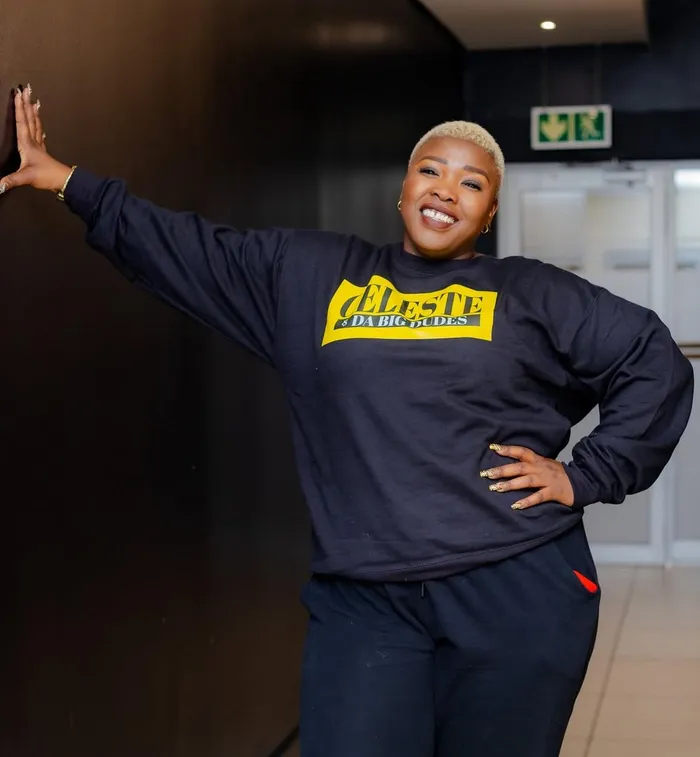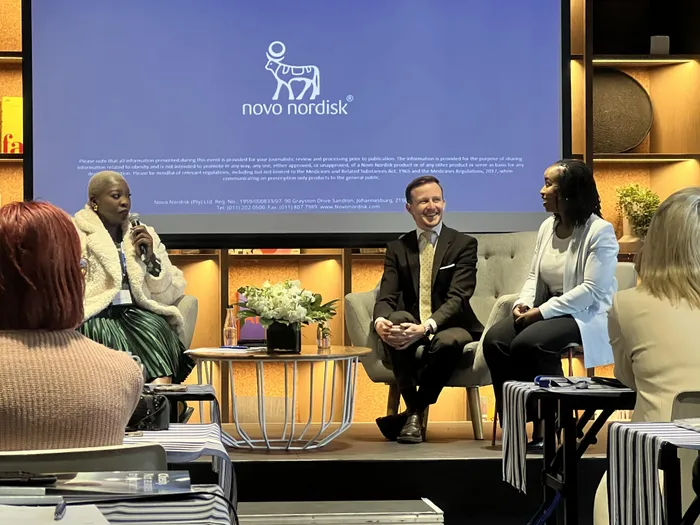Laughing through the pain: Celest Ntuli's uplifting journey from 'I thought I was ugly' to body positivity

Embracing body positivity: Celeste Ntuli’s candid journey to self-acceptance
Image: Instagram
We grow up breathing in the idea that thinness equals health, beauty, and self-control, while fatness equals laziness, failure and shame.
It’s so deeply ingrained that even those of us who’ve felt the sting of weight stigma can catch ourselves judging someone else’s body before we even realise it.
If you believe the billboards, weight loss is a simple equation: eat less, move more. Drink this detox tea. Try this app. Sign up for that boot camp. But here’s the truth that most marketing won’t touch: for many people, weight is far more complex than calorie maths.
Obesity isn’t just about willpower. It’s a chronic, multifactorial condition influenced by genetics, environment, psychology, hormones, and even the way your body fights back against weight loss. And yes, that’s a real thing.
This is called metabolic adaptation, a survival mechanism in which, sensing weight loss, your body slows its metabolism, raises hunger hormones, and burns fewer calories at rest. It’s not sabotage, just biology. Your body thinks you’re starving, not dieting.
The queen of Zulu comedy, Celeste Ntuli, has built her career on making people laugh, but behind her humour lies a deeply personal journey of learning to live at peace with her body.
We meet at the launch of Wegovy, the first once-weekly GLP-1 therapy approved in South Africa for treating obesity and overweight, where Ntuli speaks with the same openness she brings to the stage.
She doesn’t shy away from the uncomfortable truths about weight, self-image and the pressure to fit into society’s mould.

South African actress and comedian Celest Ntuli with Jonas Lind Hansen, Director and Head of Legal, Ethics, Compliance & Quality South Africa and Dr. Mary Ngome: Sr. Director, Medical & Marketing, Business Area Africa - Novo Nordisk
Image: vuyile madwantsi
“I’ve been big all my life. Everyone in my family is slimmer, and you get questions like, 'What happened to you?'
“One bends herself like a hosepipe doing yoga for fun!” she laughs.
"My weight fluctuates; sometimes I lose, sometimes I gain. But I’ve learnt to give myself grace. I’ve never aimed to be a size 30 just to feel like myself.”
“People think if you have a trainer, you’re fancy,” Ntuli laughs, rolling her eyes. “Me? I’ll go to the gym, get a smoothie, and walk right out.” It is remarkable how honest she is in an industry and society that polices women's bodies.
“I’ve accepted this isn’t my easiest path,” Ntuli said in the conversation between herself and co-host Phemelo Motene. “Other things come easily, but this?
"Sometimes, the gym just isn’t possible. But I’ve learned to give myself grace. If my schedule’s crazy, I do what I can. I try intermittent fasting, drink a lot of water, and stop eating after 6 or 7pm. But mostly, I just try to be kind to myself.”
Ntuli’s relationship with her body has been a slow, sometimes painful evolution. “For years, I believed the lie that I was ugly,” she admitted.
“It wasn’t even a sad thing; it was just something I accepted. I embodied it.”
She credits her career in comedy for helping her develop thick skin and quick comebacks. The entertainment industry, with its billboards and public scrutiny, forced her to see herself through the eyes of strangers. “But over time, I realised: haibo, girl! This is who I am. And I’m beautiful.”
“People cross boundaries all the time. They’ll blurt out, ‘Are you pregnant?’ or ask about my weight. But now, I have my comebacks ready. Maybe that’s why I became a comedian to defend myself”
“Cooking brings me back to myself”
“Cooking is how I relax, how I come back to myself,” she shared. I’m not a chef, but I love trying new recipes for my house. It’s healing. It’s creative.”
Her relationship with food is about nourishment, not punishment. “I use less oil, less sugar, but I don’t deprive myself. Growing up, health was always linked to caution, avoiding diseases, and not eating too much fat. Now, I focus on balance."
Fashion is another form of self-love
“When I shop, I don’t chase trends meant for thinner girls. I go for what works for my body, what makes me feel good. For big girls, shops love funeral colours, black and grey. I want colour! I want joy in my clothes.”
The journey hasn’t been linear
“My weight fluctuates. Sometimes I’m bigger, sometimes I lose weight. When I lose too much, I don’t feel like myself. My relationship with my body has sometimes been unkind, never fully satisfied.
"But when I look back at old photos, I think, ‘What was wrong with that?’ At the time, it never felt right. Now, I treat every size with grace.”
She knows obesity is a complex issue, physically, emotionally, and mentally taxing. “You put so much guilt on yourself when you don’t exercise, when you eat late, when your knees hurt. But I’ve learned to give myself grace. That’s all I’m saying.”
According to the World Health Organisation, self-compassion plays a vital role in sustained health changes
“You don’t have to shrink to shine”
According to the comedian, confidence is hard-won.
“Sometimes people look at me and say, ‘How are you so happy at your size? Shouldn’t you be depressed?’ But I won’t shrink myself for others’ comfort.
“I’m not waiting to reach an ideal weight to love myself”
Ntuli’s story is one of growth, acceptance, reflection and love. “If I turn 50 and never reach some magical number on the scale, I’ll still love myself. I’m happy now.”
Her laughter, her honesty and her grace are a powerful reminder: our worth is not measured by our weight, but by our willingness to show up, live fully, and love ourselves fiercely.